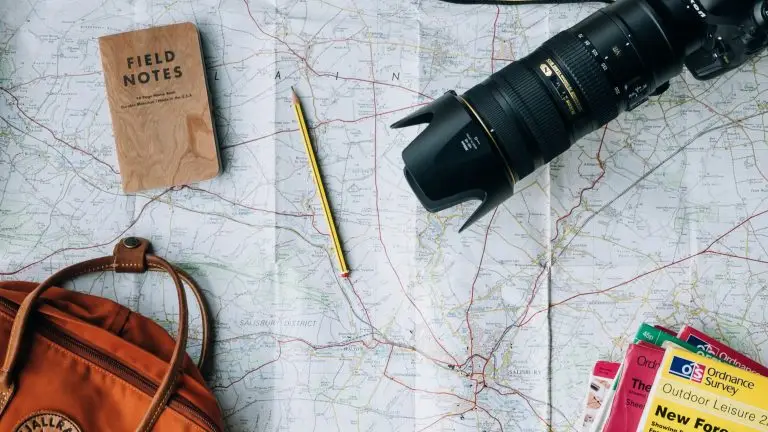
A Personally Selected List of 13 Best Dutch Books
A Personally Selected List of Best Dutch Books Dutch literature, although often overlooked compared to its European counterparts, brings a unique perspective to world literature.
New Zealand is an island country located in the southwestern Pacific Ocean, consisting of two main islands and several smaller ones. It is known for its stunning natural beauty, diverse culture, and friendly people. The country has a unique cultural heritage, with influences from the indigenous Māori people, as well as European settlers. Today, New Zealand is known for its progressive policies, such as environmental conservation and social welfare programs. New Zealand is home to many different ethnic groups, including the Māori, European, Pacific Islander, and Asian communities. The culture is characterized by traditional practices, such as haka (Māori dance), rugby, and outdoor activities like hiking and skiing.
New Zealand has a diverse culinary tradition, with dishes featuring a variety of seafood, meats, and produce. Some popular New Zealand dishes include pavlova (meringue-based dessert), fish and chips, and meat pies. The country is also known for its stunning natural beauty, including pristine beaches, mountains, and national parks. New Zealand is home to many famous landmarks and attractions, such as the Milford Sound, the Franz Josef Glacier, and the Waitomo Glowworm Caves.
“The Luminaries” is a novel by Eleanor Catton, published in 2013. The book is set in the 1860s during the New Zealand gold rush and follows the story of a young woman named Anna Wetherell who arrives in the town of Hokitika to start a new life. The plot is filled with mystery and intrigue, as Anna becomes embroiled in a series of strange events involving a wealthy businessman, a missing person, and a secret society. The novel features an intricate plot, complex characters, and was highly acclaimed for its unique narrative structure and rich historical detail.
“The Bone People” is a novel by New Zealand author Keri Hulme, published in 1984. The book tells the story of a reclusive artist named Kerewin Holmes who lives on the coast of New Zealand’s South Island. Her solitude is interrupted when a mute boy, Simon, washes up on the beach near her home, and she takes him in. The story follows their developing relationship, as well as Simon’s troubled past and the arrival of his adoptive father, Joe, who is seeking to reconnect with him. The novel deals with themes of identity, trauma, and cultural heritage, and won the Booker Prize in 1985.
“The Whale Rider” is a novel by New Zealand author Witi Ihimaera, published in 1987. The book tells the story of a young Maori girl named Kahu, who is the great-granddaughter of the chief of her tribe. Despite being excluded from tribal traditions and leadership roles because of her gender, Kahu possesses a special connection to the tribe’s spiritual guardian, a whale known as Paikea. As Kahu grows up, she fights against the patriarchal traditions of her tribe and strives to prove her worth as a leader. The novel deals with themes of gender, identity, and cultural heritage and was adapted into a successful film in 2002.
“The Garden Party and Other Stories” is a collection of short stories by the New Zealand author Katherine Mansfield. The book was first published in 1922, and it includes a total of 15 stories, some of which are set in New Zealand while others take place in Europe. The stories explore themes such as class, gender, and identity, and they are known for their psychological depth and subtle use of symbolism. The title story, “The Garden Party,” is one of Mansfield’s most famous works and follows a young woman named Laura as she prepares for a garden party hosted by her wealthy family. The collection is considered a masterpiece of modernist literature and helped establish Mansfield as a leading figure in the genre of short fiction.
“Mister Pip” is a novel by the New Zealand author Lloyd Jones, published in 2006. The book is set during the Bougainville Civil War in Papua New Guinea and tells the story of a young girl named Matilda who lives in a small village on the island. When a white man named Mr. Watts arrives in the village and begins to teach the children about Charles Dickens’ novel “Great Expectations”, Matilda becomes enamored with the story and forms a bond with Mr. Watts. However, as the war intensifies and the village is caught in the crossfire, the characters are forced to confront the harsh realities of the conflict. The novel deals with themes of colonialism, identity, and the power of literature, and was shortlisted for the Man Booker Prize in 2007.
“Once Were Warriors” is a New Zealand drama film directed by Lee Tamahori, released in 1994. The movie tells the story of the Heke family, a Māori family living in a poor urban area of Auckland. The film explores the themes of poverty, alcoholism, domestic violence, and cultural identity. The story focuses on the character of Beth Heke, who is trying to hold her family together while dealing with the abusive behavior of her husband Jake. The film was highly acclaimed for its raw and honest portrayal of social issues facing Māori communities in New Zealand and became a cultural phenomenon in the country, sparking debates about the representation of Māori culture in media.
“Bad Taste” is a New Zealand science fiction comedy-horror film directed by Peter Jackson, released in 1987. The film tells the story of a group of aliens who come to Earth with the intention of turning humans into food for their intergalactic fast food chain. The plot centers on a team of government agents who are sent to investigate the disappearance of a small town’s residents, only to discover the alien plot. The film is known for its low-budget special effects and dark humor, and it has gained a cult following among fans of the horror and science fiction genres.
“Hunt for the Wilderpeople” is a New Zealand adventure comedy-drama film directed by Taika Waititi, released in 2016. The film tells the story of a young boy named Ricky Baker who is placed in the care of foster parents in a rural area of New Zealand. When Ricky’s foster mother suddenly passes away, he and his foster father, a gruff man named Hector, become the target of a nationwide manhunt. The two embark on a journey through the New Zealand wilderness as they try to evade the authorities and survive in the wild. The film deals with themes of family, identity, and the connection to the land, and it was a critical and commercial success both in New Zealand and internationally.
“The World’s Fastest Indian” is a New Zealand biographical sports drama film directed by Roger Donaldson, released in 2005. The movie tells the true story of Burt Munro, a New Zealand motorcycle racer who spent years building and modifying his 1920 Indian Scout motorcycle in order to set a land speed record at the Bonneville Salt Flats in Utah. The film follows Munro’s journey from his small hometown in New Zealand to the United States, where he faces numerous challenges and obstacles in his quest to achieve his dream. The film is a tribute to Munro’s determination and passion for racing, and it has been praised for its heartwarming portrayal of a unique and inspiring individual.
“Whale Rider” is a New Zealand movie that was released in 2002. It was directed by Niki Caro and based on the novel of the same name by Witi Ihimaera. The movie tells the story of a young Maori girl named Paikea, who is trying to reclaim her place as the leader of her tribe in the face of tradition and patriarchy. The film received critical acclaim and was a box office success both in New Zealand and internationally. It also helped to bring attention to Maori culture and traditions.
New Zealand has a diverse and vibrant music scene that reflects the country’s multicultural heritage and artistic innovation. Traditional New Zealand music includes a variety of genres, such as Māori music, colonial-era music, and Pacific Islander music.
Māori music is characterized by its use of traditional instruments, such as the pukaea (trumpet) and taonga pūoro (Māori musical instruments). Māori music often tells stories of the culture’s history, customs, and traditions. Colonial-era music in New Zealand includes genres such as brass bands and choral music, which were brought to the country by European settlers. Pacific Islander music draws influences from various island cultures, such as reggae, hip hop, and traditional Polynesian music.

A Personally Selected List of Best Dutch Books Dutch literature, although often overlooked compared to its European counterparts, brings a unique perspective to world literature.

